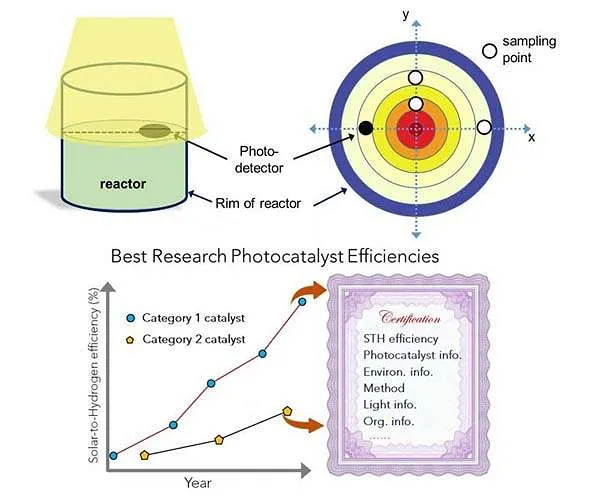Facility testing criteria for particle photocatalysts in solar fuel manufacturing suggested
- Utilization of eco-friendly solar energy is vital for dealing with the international energy and also ecological concerns as well as achieving sustainable advancement in our culture. Hereof, photocatalytic water splitting has drawn in significant passion as an affordable methods to transform sustainable solar power right into useful chemicals.

Nonetheless, performance is sensitive to reaction conditions and also experimental configuration, it is challenging to compare the results gotten by different research teams or offer a reputable guide for large-scale execution. Due to the absence of testing standards, it is hard to compare the outcomes acquired by different study groups or offer a dependable overview for large application.
Lately, a research team led by Prof. LI Can and also Prof. LI Rengui from the Dalian Institute of Chemical Physics (DICP) of the Chinese Academy of Sciences (CAS), in partnership with Prof. Kazunari Domen from The University of Tokyo, Prof. Lianzhou Wang from The University of Queensland, Prof. Kazuhiro Sayama from the National Establishment of Advanced Industrial Science as well as Modern Technology, and also Prof. Gang Liu from the Institute of Metal Research, CAS, launched the establishment of global effectiveness accreditation as well as screening methods for particulate photocatalysts towards solar fuel production.
Their viewpoint, published in Joule, was anticipated to function as a beneficial overview for creating a well-recognized testing standard and for additional advertising research study developments in the field of photocatalytic solar energy conversion.
The scientists talked about the procedures for the reliable resolution of the effectiveness of the overall photocatalytic water splitting reaction based on particle photocatalysts.
They additionally suggested to develop accreditation lab for efficiency accreditation toward the launch of a figure of benefit - a "Best study photocatalyst performances" graph.
This initiative would offer a crucial platform for establishing standard testing protocols for photocatalytic water splitting and for improving the solar-to-hydrogen conversion effectiveness in useful applications.
Also read

